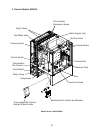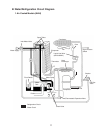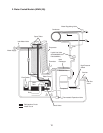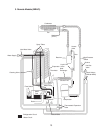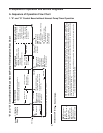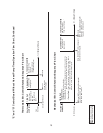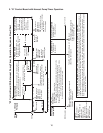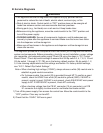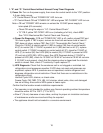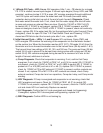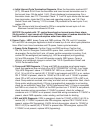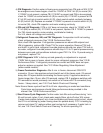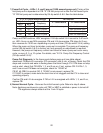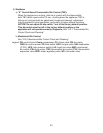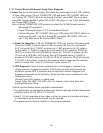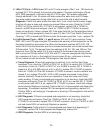18
1. "E" and "G" Control Board without Harvest Pump Timer Diagnosis
3) Power On: Turn on the power supply, then move the control switch to the "ICE" position.
A 5-sec. delay occurs.
• "E" Control Board: CB red "POWER OK" LED turns on.
• "G" Control Board: CB red "POWER OK" LED and green "BC CLOSED" LEDturn on.
Note: • CB red "POWER" LED remains on unless the 10.5VAC power supply is
interrupted (K2 connector).
• Check CB using the steps in "II.C. Control Board Check."
• "G" CB: If yellow "BC OPEN" LED is on (indicating a full bin), check MBC.
See"II.D.2. Mechanical Bin Control Check and Cleaning."
a) Power On Diagnosis: If CB red "POWER OK" LED is off, conrm closed TBC and
10A fuse is good. If TBC is open, remove ice from bulb and warm bulb in hand. If
TBC does not close, replace TBC. See "II.D.1. Thermostatic Bin Control Check."
Check for 115VAC at control switch #1(BR) to neutral (W) then at control switch
#2(P) to neutral (W). If 115VAC is present on #1 (BR) and not on #2(P), replace
control switch. If 115VAC is present on control switch #2 (P), check for 115VAC at
HPS (P) to neutral (W) then HPS (BK) to neutral (W). If115VAC is present at HPS
(P) and not at HPS (BK), HPS is open. See HPS Diagnosis below. If 115VAC is
present at HPS (BK), check for 10.5VAC at CB K2#1 red wire to CB K2 #2 red wire.
If 10.5VAC is not present, check that the cleaning valve is closed and the interlock
switch is closed. Next, check CT continuity. Ifopen replace CT.
b) HPS Diagnosis: Check that the condenser coil is not clogged or restricted. Let
refrigeration circuit pressures equalize. If HPS does not reset and pressures are
equalized, replace HPS. If pressures are not equalized, reclaim refrigerant and
diagnose refrigeration circuit restriction. Check that there are no restrictions in the
refrigeration circuit.
Harvest Cycle: HGV, strainer, or check valve.
Freeze Cycle: FM, FMR, TXV, HM, LLV, strainer, check valve, drier, and damaged
line set or tting. Also conrm WRV opens in freeze cycle.
Conrm that the location meets installation requirements:
• The icemaker is not intended for outdoor use. Normal operating ambient temperature
should be within 45°F to 100°F (7°C to 38°C).
• Allow 6" (15 cm) clearance at rear, sides, and top for proper air circulation and ease
of maintenance and/or service should they be required.
• The appliance should not be located in a corrosive environment.



